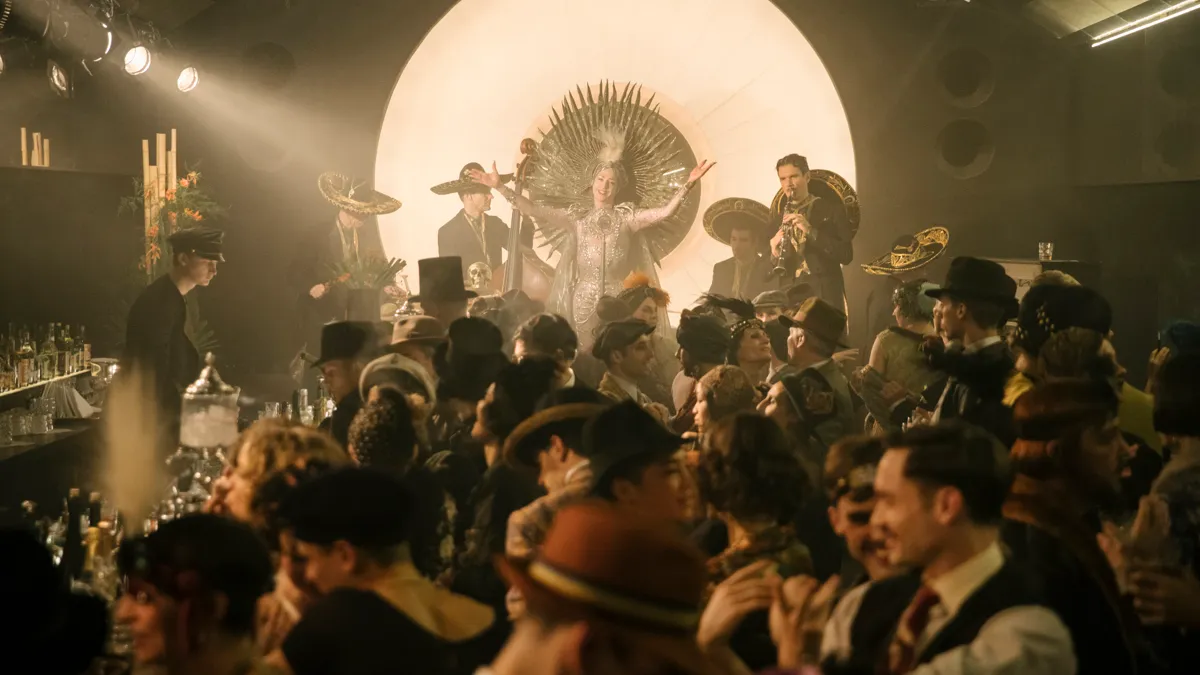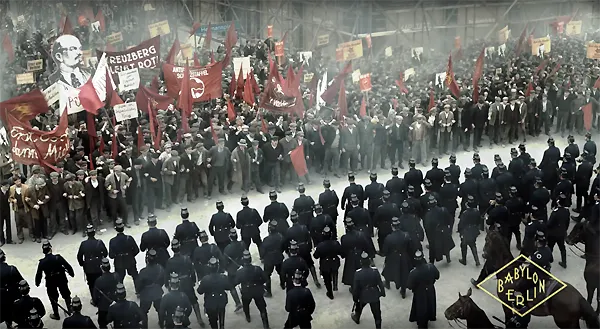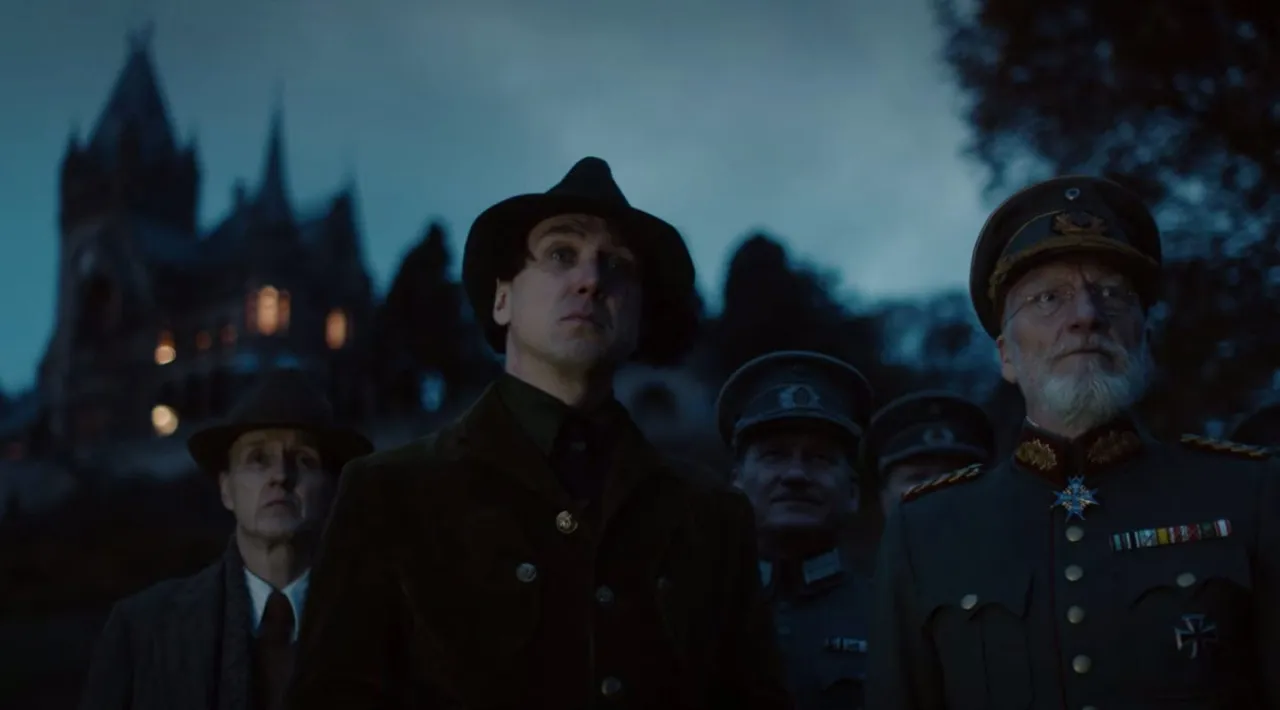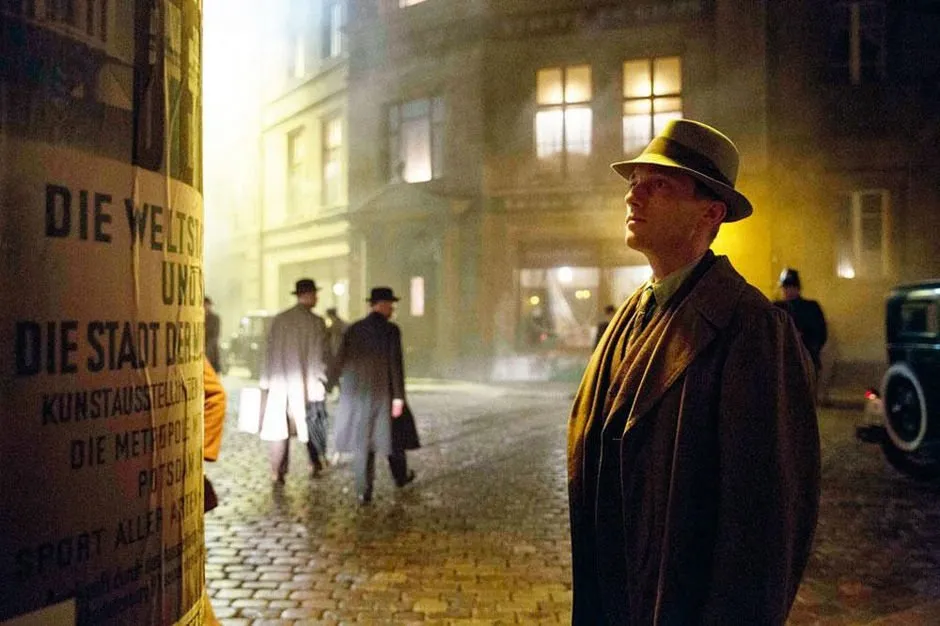Germany between the two world wars: a setting for all types of social unrest, economic turmoil, and the aspiration of great ideals. A stark juxtaposition of abject poverty and unprecedented financial gains, of social movements from the radical to the reactionary, all set to a backdrop of a relatively progressive, yet nonetheless brutal state. Given all these sentiments of change and upheaval, all the sex, money, crime, and power almost seem mundane. The series I'm talking about is Babylon Berlin, aired on Sky Deutschland between 2017 and 2020.
An Exceptionally Good Show
Finally I've managed to re-watch the first two seasons I didn't quite remember from two years ago, so I could fully enjoy the third one, and write this highly anticipated edition of my Binge On This blog series. (Thank you, dear followers, who have expressed interest in a Babylon Berlin review.) My opinion: This TV show is really worth watching, for a number of reasons. It's uniquely German, dealing with very German issues. In its core, plot is a suspenseful story of criminal investigation, something the Germans are skilled at anyway. But mostly, it is the portrayal of the epoch which I found most interesting about this series.
Excellent Presentation of Exciting Times
The 1920's were a fascinating time period anyway, but in Germany particularly so. While being declared the loser of WWI left a shameful wound in those who firmly believed in the empire, the more progressive minded could be proud of having created the first all German parliamentary democracy and constitutional republic. Of course, this construct was fragile from the moment it was conceived, and nobody could deny that it was under constant attack from both the left and the right. Still, while it lasted, it maintained an appearance of firmness, strength, and normality.
The other interesting feature of the decade was the almost insane economic developments at the stock market. Everyone could strike it rich by investing into just about any stock, as the whole market was reaching one record-breaking high after the other. And while the speculators used to be formerly only upper-class elites, by 1929 anyone from the deepest working-class slums could take out a bank loan to play the stock market with it. All this would have devastating consequences, as we know very well, but at the time that notion was far from obvious. And Babylon Berlin shows it very well.
What About Hitler and the Nazis?
They say hindsight is always 20/20. But is it really? Sure, the NSDAP has been steadily growing by the time this story starts. However, before the stock market crash and the subsequent start of the global depression, the Nazis were just one of the numerous political factions in this multi-faceted republic.
This reasonable contrast is again superbly executed by this series, providing a welcome relief from the impression of this time period I got in school, making it seem like there was a Nazi hiding in every bush. In fact, the Nazi movement is not even mentioned until the end of the second season. Even then, they are treated as a group of thugs to be taken advantage of by other conservative elites for their own nationalistic and imperial pursuits.
Lots of Players with Diverse Agendas
Instead, the series takes a closer look at other factions in the colorful make-up of the great scramble for power in Berlin. On one extreme there are the aforementioned nationalist, plotting schemes to return to the recently lost empire and monarchy. On the other end, communists are fighting for their own social issues, while certain expat Russians work on the overthrow of Stalin in favor of Trotsky. Then, there are the forces of the state, in form of the police, trying to maintain order with a firm hand, which ultimately results in the opposite. Finally, various gangster groups are vying for their own bits of power, interacting with the other groups in the lighter and darker shades of this gray area.
To further add to the plot, there is a train full of gold from Russia, the filming of a motion picture with sound that keeps claiming victims, a young sex-worker and aspiring police detective standing up to the gender conventions of the time, and a publicly ridiculed psychoanalyst applying an unconventional treatment to the war trauma of another protagonist.
Parallels With Today's World
Even though the Weimar Republic is a good century behind us, I can't ignore the obvious parallels with our world we currently find ourselves in. There is so much change in the air, it's crackling with electricity. Certain groups are calling for taking a radically different approach before we are forced to do so by outside factors. Others are resisting any change so vehemently that you can almost see them going down while clinging to their security blanket. Radical factions are piggybacking on other, not any less radical but maybe less refined groups, to further their own agenda. And yes, there are such profound and apparent changes in the world of finance, that it almost feels like you can see something big approaching... Not unlike the Third Reich must have seemed to clever observers, back in 1929, before it was made reality.
I hope with this short review I managed to awaken your interest in Babylon Berlin"without giving away any spoilers. For those who need a last push, here is the trailer for the first season:
Take a Look at the Previous Posts in my Binge On This Series:
Rome: A Realistic Sandal Series
Carnivàle: A Throw-back to the Thirties
Weeds: The Hillarious Alternative to Breaking Bad
Mr. Robot: Hackers, Freedom, and Mental Issues
Das Boot: A Real German WWII Series
Black Sails: Pirate Lore Galore
Twelve Monkeys: Time Travel and Pandemic
The DocsMX 2020 Film Festival








